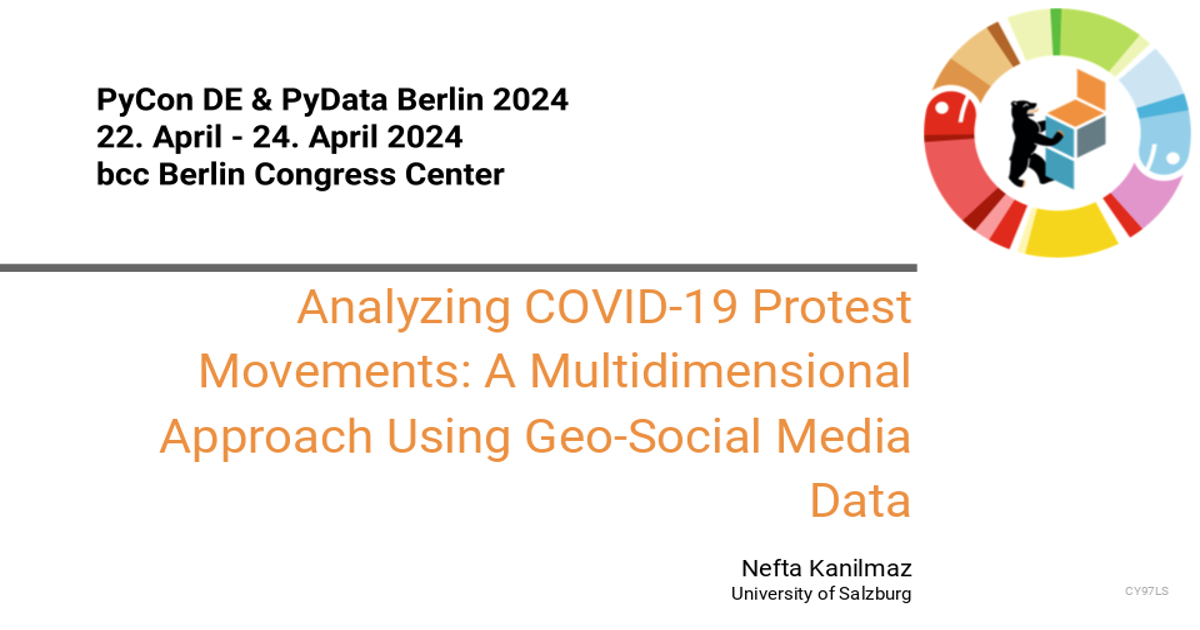Analyzing COVID-19 Protest Movements: A Multidimensional Approach Using Geo-Social Media Data
Nefta Kanilmaz
The COVID-19 pandemic and associated policy measures lead to world-wide protest movements that were singled out by the spread of misinformation and conspiracy theories, predominantly on social media platforms. Publicly available social media data therefore is a powerful proxy for studying these protest movements. The data, consisting of user locations, follower relationships, and content information, allows to understand the geographical centers of activity, network structure, and key themes of conspiracy movements.
This talk will present a multi-dimensional network analysis for the Austrian COVID-10 protest movement using Python libraries like geopandas, networkx and gensim. In particular, it will demonstrate how to identify geo-spatial hot spots using spatial statistics, densely connected clusters within the network by employing community detection techniques, as well as dominating content themes through topic modeling approaches.
The presentation highlights how data-driven analysis enables further understanding of movements that may pose threats to democracy, alongside the importance of publicly available social media data for addressing societal challenges.
Nefta Kanilmaz
Affiliation: University of Salzburg
I am a researcher and PhD candidate at the department of Geoinformatics at the University of Salzburg. My research focus lies on the spatio-temporal analysis of online communication networks based on social media data. Before that, I worked as a software engineer on scalable big data processing for machine learning applications.

